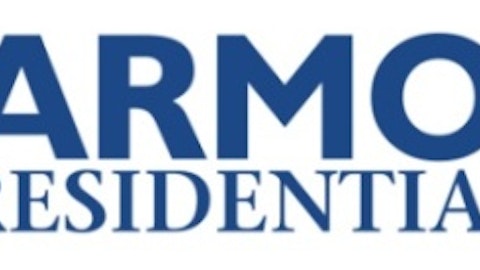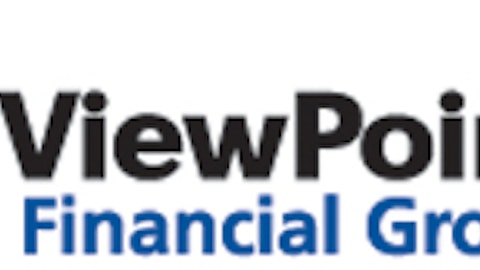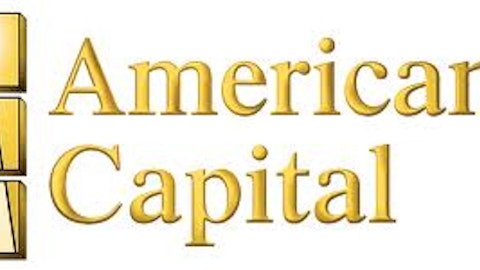
Source: Valerie Everett, Flickr.
Earlier this week, I applauded American Capital Ltd. (NASDAQ:ACAS)‘s asset management subsidiary as a rock star.
As the manager of American Capital Agency Corp. (NASDAQ:AGNC) and American Capital Mortgage Investment Crp (NASDAQ:MTGE), American Capital can reward itself with more than $100 million in annual dividends.
But the asset management subsidiary only makes up about 19% of net asset value.
What about the other 81%?
Truth be told, the fast-growing asset management business has largely covered up material weakness in other segments of the company.
In the latest quarter, American Capital Ltd. (NASDAQ:ACAS) recorded $130 million in operating revenue, which includes all dividends and interest income. After all operating expenses — interest, salaries, and general and administration expenses — pre-tax operating income comes to $65 million for the quarter.
Removing the effects of a $29 million dividend from its asset management business in the second quarter, pre-tax operating profits came in at just $36 million.
The big problem
Pre-tax operating profits are what drive dividends for business development companies. Generally speaking, BDCs seek to invest in debt and equity that offer routine dividends and interest payments. Those dividends and interest payments are then deployed as a “base” dividend payment that can be supplemented with sporadic special dividends.
Main Street Capital Corporation (NYSE:MAIN) is a BDC that uses this model — it pays out regular dividends that are supplemented with semi-annual dividends from profits from the sale of equity in portfolio companies. Despite the fact that it is one of the lower-yielding BDCs, investors have no qualms paying well over book value for its shares.
Unfortunately, if American Capital Ltd. (NASDAQ:ACAS) were to pay out all of its operating income as a dividend, it would fall seriously short of BDC investors’ expectations.
American Capital Ltd. (NASDAQ:ACAS) reports a book value of $5.58 billion. Removing the asset manager from the mix gives us a book value of $4.6 billion. Thus, American Capital Ltd. (NASDAQ:ACAS) is essentially telling shareholders that its portfolio is worth $4.6 billion even though it generated just $36 million in pre-tax operating profits in the last quarter.
If we take $36 million of pre-tax quarterly operating profits and divide it by book value of $4.6 billion, we get a yield of just 3.1% per year. Including the asset manager, American Capital would be a BDC with book value of $5.58 billion that pays out a dividend of 4.65% annually. That’s better, certainly, but it’s nothing compared to yields of 8%-12% from other BDCs.
Explaining away the discount to NAV
If you’ve followed me this far, you’re probably starting to see why American Capital trades at one of the largest discounts to NAV in the BDC universe: Its net operating income would not create a BDC-like yield. For American Capital’s stock to yield 9%, it would need to trade at just half of NAV. Shares currently trade at a 31% discount to second-quarter NAV.
For American Capital to trade at or near NAV, it must show substantial improvements in net operating income to justify a higher potential dividend and thus a higher stock price. Alternatively, it needs considerable improvements in the value of its portfolio investments, and subsequently large equity exits.
Looking ahead, I’ll delve into American Capital’s equity investments and discuss a few potential remedies to American Capital’s languishing share price relative to NAV. BDCs are complicated investment vehicles, but given enough inspection of the financial statements, American Capital is more than understandable. At the right price, it’s probably investable.
The article 1 Company Facing an Uphill Battle originally appeared on Fool.com and is written by Jordan Wathen.
Fool contributor Jordan Wathen has no position in any stocks mentioned. The Motley Fool has no position in any of the stocks mentioned.
Copyright © 1995 – 2013 The Motley Fool, LLC. All rights reserved. The Motley Fool has a disclosure policy.





